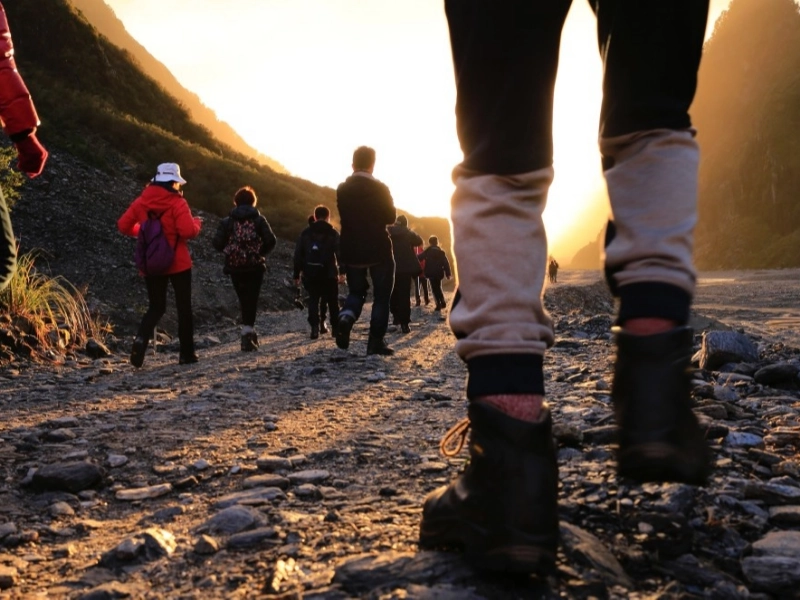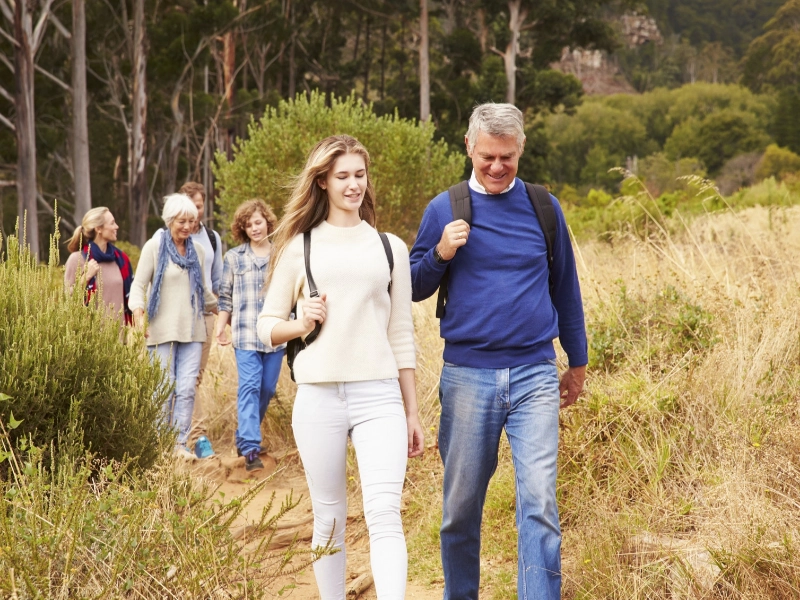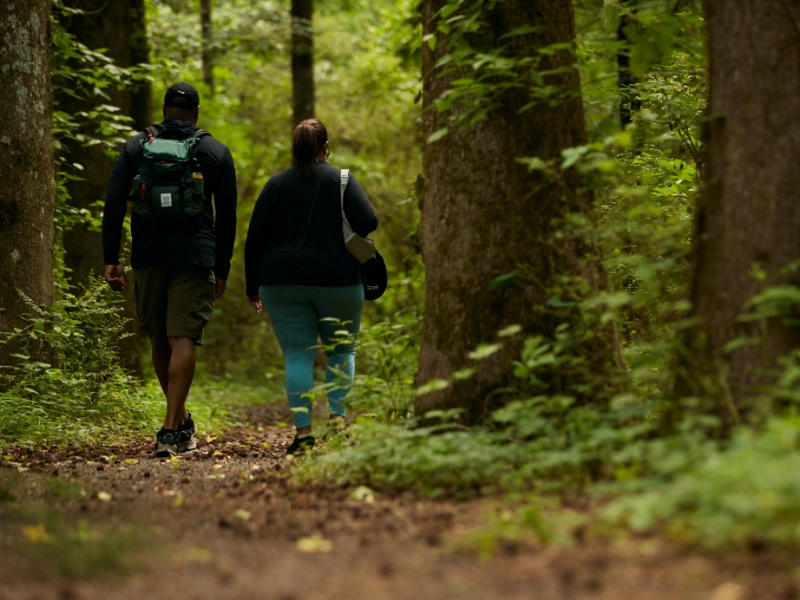Trekking is an excellent way to get in shape, build stronger legs, and explore some of the world's most breathtaking locations. It's also a fantastic way to decompress and establish a connection with nature. While many types of exercise are good for lowering stress and anxiety, hiking is particularly helpful because it takes place in a natural setting. Actually, research indicates that light trekking enhances the quality of sleep.

 One of the best ways to decompress is to go hiking. This is due to the fact that it is an aerobic type of exercise, which energises the body and aids in the chemical regulation of stress. Hiking also helps to develop your internal stress-reduction mechanism by allowing you to concentrate on in-depth thought.
Hiking also offers a rich amount of vitamin D, which has been demonstrated to lessen symptoms of depression. Researchers from Stanford discovered in a study that individuals who hiked on a daily basis had lower levels of depression symptoms and higher vitamin D levels in their bodies.
Hiking is a fantastic alternative because it allows you to enjoy the relaxing benefits of green surroundings and immerse yourself in nature, even though most forms of exercise will help you sleep better. Through the control of parasympathetic nervous system activity, this kind of exercise reduces blood pressure and slows heart rate by controlling parasympathetic nervous system activity, thus improving the quality of your sleep.
One of the best ways to decompress is to go hiking. This is due to the fact that it is an aerobic type of exercise, which energises the body and aids in the chemical regulation of stress. Hiking also helps to develop your internal stress-reduction mechanism by allowing you to concentrate on in-depth thought.
Hiking also offers a rich amount of vitamin D, which has been demonstrated to lessen symptoms of depression. Researchers from Stanford discovered in a study that individuals who hiked on a daily basis had lower levels of depression symptoms and higher vitamin D levels in their bodies.
Hiking is a fantastic alternative because it allows you to enjoy the relaxing benefits of green surroundings and immerse yourself in nature, even though most forms of exercise will help you sleep better. Through the control of parasympathetic nervous system activity, this kind of exercise reduces blood pressure and slows heart rate by controlling parasympathetic nervous system activity, thus improving the quality of your sleep.
 Hiking has several benefits, such as strengthening your bones and legs and providing an excellent cardiovascular workout. It also aids in the acquisition of vitamin D, which is necessary for a strong immune system and a healthy body. It also promotes a calmer, more in-tune sense of well-being.
Apart from its physical advantages, hiking has the potential to alleviate anxiety and tension. It boosts the production of endorphins, a naturally occurring analgesic. Additionally, it improves proprioception, which is the mind's knowledge of how your body moves and positions itself in relation to its surroundings.
Moreover, hiking is a fantastic way to strengthen relationships with loved ones. People who spend more time in nature are likely to be happier and healthier, according to studies. Hiking in a natural environment is particularly helpful for people who suffer from climate anxiety, a term that describes the rage and concern that many people have about the consequences of global warming.
Hiking has several benefits, such as strengthening your bones and legs and providing an excellent cardiovascular workout. It also aids in the acquisition of vitamin D, which is necessary for a strong immune system and a healthy body. It also promotes a calmer, more in-tune sense of well-being.
Apart from its physical advantages, hiking has the potential to alleviate anxiety and tension. It boosts the production of endorphins, a naturally occurring analgesic. Additionally, it improves proprioception, which is the mind's knowledge of how your body moves and positions itself in relation to its surroundings.
Moreover, hiking is a fantastic way to strengthen relationships with loved ones. People who spend more time in nature are likely to be happier and healthier, according to studies. Hiking in a natural environment is particularly helpful for people who suffer from climate anxiety, a term that describes the rage and concern that many people have about the consequences of global warming.
 Your body naturally produces vitamin D while you hike, which can help you fall asleep and stay asleep throughout the night. Additionally, the greenery has a relaxing impact that reduces sympathetic activity, or the fight-or-flight response, and increases parasympathetic activity.
Stress, poor sleeping habits, and other factors can trigger insomnia, a frequent sleep ailment. Walking on a regular basis, however, can help relieve stress and is an excellent form of physical and mental exercise.
Hiking is a popular method for those with insomnia to improve their sleep quality. It's also a simple, low-impact workout that doesn't call for any specialised gear or prior experience. Additionally, hiking can increase your confidence and sense of self-worth by enabling you to overcome obstacles and reach your physical goals. These satisfying emotions can significantly improve your life and help you sleep better. Hiking should, therefore, be a regular part of your schedule.
Your body naturally produces vitamin D while you hike, which can help you fall asleep and stay asleep throughout the night. Additionally, the greenery has a relaxing impact that reduces sympathetic activity, or the fight-or-flight response, and increases parasympathetic activity.
Stress, poor sleeping habits, and other factors can trigger insomnia, a frequent sleep ailment. Walking on a regular basis, however, can help relieve stress and is an excellent form of physical and mental exercise.
Hiking is a popular method for those with insomnia to improve their sleep quality. It's also a simple, low-impact workout that doesn't call for any specialised gear or prior experience. Additionally, hiking can increase your confidence and sense of self-worth by enabling you to overcome obstacles and reach your physical goals. These satisfying emotions can significantly improve your life and help you sleep better. Hiking should, therefore, be a regular part of your schedule.